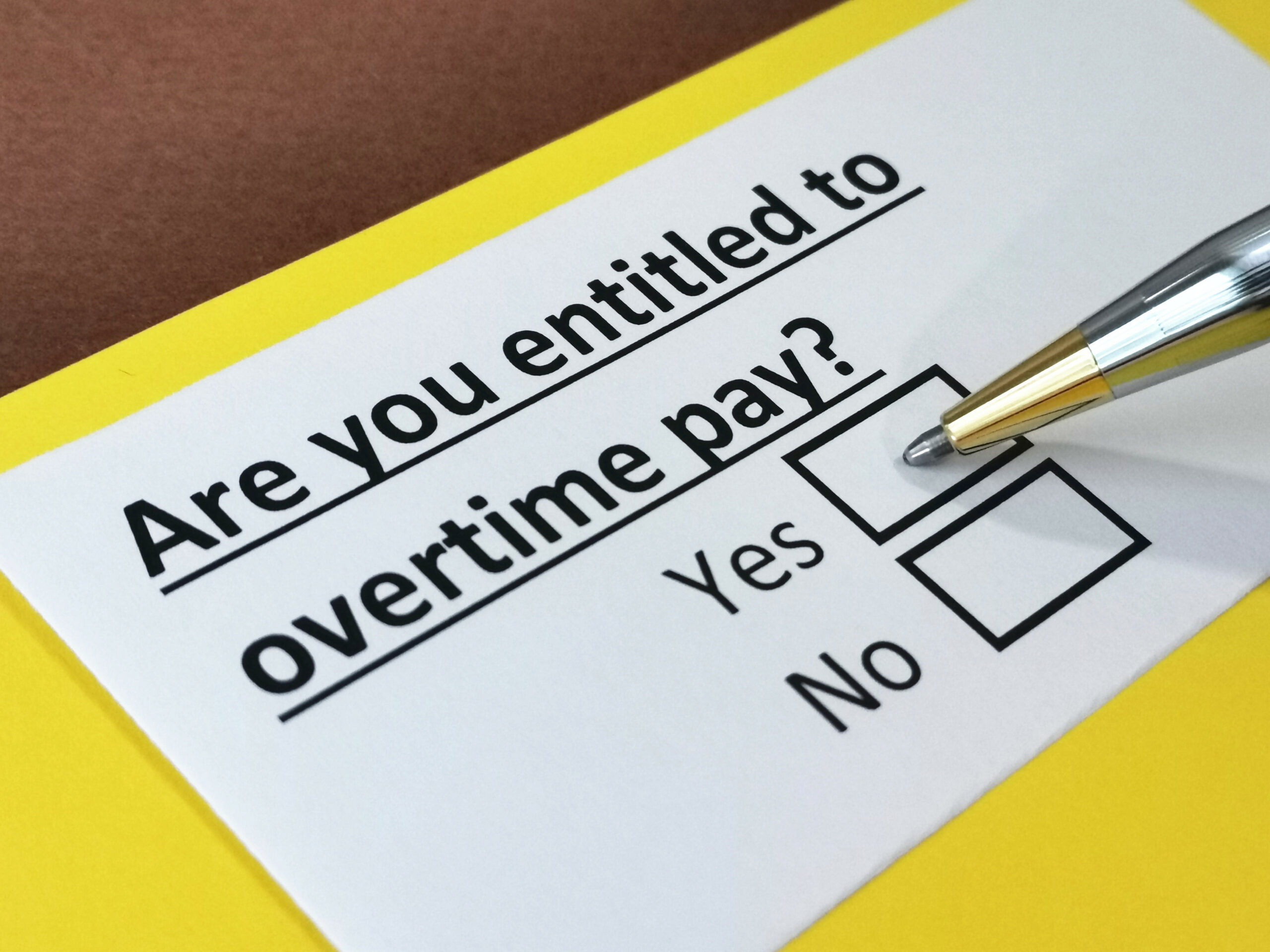San Francisco Tenants Have Right to Choose Internet Provider Under Article 52
Everyone should have the right to affordable and high-quality internet of their choice. However, not every tenant does. Many American tenants, including in San Francisco, often lack the freedom to choose their internet service. Large corporations like Comcast and AT&T enter into exclusivity agreements with landlords ensuring they are the only building option. In return, the internet service provider pays the landlord for each tenant who subscribes to internet service. These agreements give the corporation monopoly status in the building and restrict tenants’ choice. Even in a tech-hub like San Francisco, many tenants are stuck with only a single internet option that is often expensive, unreliable, and slow.
With this growing problem in mind, San Francisco passed a local ordinance in 2016, seeking to promote competition and increase tenant internet service freedom of choice. Codified at San Francisco Police Code Article 52 (“Article 52”), San Franciscans living or working in rental buildings with at least four units have the right to obtain internet from the internet service provider of their choice. San Francisco Police Code § 5201. The law accomplishes this noble goal by requiring landlords to allow internet service providers reasonable access to the property to set up and provide service, creates a procedural framework for requesting and implementing service, and creating enforcement mechanisms for violations, including the right to sue in San Francisco Superior Court. This article provides San Francisco tenants with a brief analysis of Article 52 and the right to choose internet service.

Article 52’s Right to Internet Service Choice
Article 52 creates a right to choose an internet service provider. Where a tenant desires internet service from a specific company, the landlord must grant the provider reasonable access to the property. Under the ordinance, an internet service provider, formally referred to as a communications service provider, is defined as a company that has obtained proper licensing to provide internet, cable television, or other similar services from San Francisco and California authorities. San Francisco Police Code § 5200. Practically, Article 52 operates to prohibit situations where a San Francisco tenant cannot select the internet service of their choice.
A landlord violates Article 52 through interference. Specifically, any action interfering with an occupant obtaining the internet service of their choice is a violation. San Francisco Police Code § 5201. Common examples of landlord interference include:
- Ignoring a tenant or internet service provider’s request to initiate service installation;
- Unreasonably limiting an internet service provider’s access;
- Enforcing invalid exclusivity agreements in rental properties covered under Article 52;
- Refusing to allow the internet service provider to install equipment necessary for service; and,
- Refusing to allow the internet service provider to use existing equipment essential for service.
Rental Units Covered Under Article 52
Article 52 applies to multiple occupancy buildings. San Francisco Police Code § 5200. This includes apartment buildings, or other residential buildings, with at least four separate units. Id. Commercial buildings with at least four units are also covered. Id. Hotels, guesthouses, and motels are not covered. Id.
Any covered building occupant has the right to choose an internet service provider. Id.
Requesting Internet Service Under Article 52
Article 52 not only creates a right to choose internet service, but also expresses an extensive framework for requesting service. First, the tenant should inquire about obtaining internet service from their landlord or property manager. It is likely that only where the landlord interferes with the tenant’s freedom of choice will the tenant, or their preferred internet service provider, enforce Article 52 rigorously.
Luckily, the rest of the process falls on the internet service provider, and not the tenant. The tenant need only request service from the provider, usually via email, website, or phone call. Under Article 52, the internet service provider handles the rest. The landlord can object to the internet service providers request, but must state valid reasons supporting the objection. The service must not disturb the safety, functioning, and appearance of the property, and building occupants.
Notice of Violation for Landlord Noncompliance
Article 52 provides robust violation and enforcement mechanisms. These measures include varying notice of violation procedures, and several avenues for enforcing the Ordinance and recovering for harm. The tenant, internet service provider, or San Francisco City Attorney may enforce Article 52.
Before instituting any enforcement proceeding against a noncomplying landlord, the internet service provider or tenant must serve a written notice of violation on the landlord, and their agents. San Francisco Police Code § 5209. The notice of violation must state:
- The landlord is violating Article 52;
- A description of the violation;
- Identification of actions the landlord must take to comply with Article 52; and,
- The noticing party may take further action unless the landlord complies with Article 52 within ten days. Id.
Suppose the landlord does not comply with Article 52. In that case, the noticing party may file a complaint in the San Francisco Superior Court for injunctive and monetary relief stemming from the violation. San Francisco Police Code § 5211. Attorney fees and court costs are recoverable. San Francisco Police Code § 5212. Alternatively, the San Francisco City Attorney may institute a civil proceeding for injunctive relief, monetary relief, and penalties. San Francisco Police Code §§ 5210, 5213.
Please note that before filing a civil action in the San Francisco Superior Court, the internet service provider or tenant must serve the San Francisco City Attorney with written notice of their intent to proceed against the landlord. San Francisco Police Code § 5211. Only where the San Francisco City Attorney fails to initiate a civil proceeding attorney within thirty days does the noticing party have the right to sue in court. Id.
Article 52 Private Right of Action Statute of Limitations
A tenant or internet service provider must file a complaint in court within 180 days of completing the notice of violation to landlord and the notice of intent to the San Francisco City Attorney. San Francisco Police Code § 5214.
San Francisco tenants in multi-unit buildings facing landlord interference in the right to choose internet service should talk to their preferred internet service provider and an attorney about their options moving forward and enforcing their Article 52 tenant rights.
Categories
- Agoura Hills
- Alameda
- Albany
- Alhambra
- Aliso Viejo
- Alpine
- Alpine Heights
- Altadena
- American Canyon
- Anaheim
- Antioch
- Aptos
- Arcadia
- Ashland
- Atascadero
- Atherton
- Avocado Heights
- Azusa
- Baldwin Park
- Banning
- Barstow
- Bay Point
- Beaumont
- Bellflower
- Belmont
- Benicia
- Berkeley
- Beverly Hills
- Bloomington
- Bodega Bay
- Bonita
- Bradbury
- Brea
- Breach of the Covenant of Quiet Enjoyment
- Breach of the Warranty of Habitability
- Brentwood
- Brisbane
- Buena Park
- Burbank
- Burlingame
- Calabasas
- Calexico
- California Rent Control
- California Tenants
- Calimesa
- Calistoga
- Camarillo
- Campbell
- Canyon Lake
- Capitola
- Carlsbad
- Carmel-By-The-Sea
- Carpinteria
- Carson
- Casa De Oro-Mount Helix
- Castro Valley
- Castroville
- Cathedral City
- Cerritos
- Charter Oak
- Cherryland
- Chino
- Chino Hills
- Chula Vista
- Citrus
- City of Industry
- Claremont
- Coachella
- Colma
- Colton
- Commerce
- Compton
- Concord
- Corona
- Coronado
- Coronita
- Corte Madera
- Costa Mesa
- Cotati
- Crockett
- Culver City
- Cupertino
- Daly City
- Dana Point
- Danville
- Del Mar
- Desert Hot Springs
- Diamond Bar
- Discovery Bay
- Dixon
- Drawbridge
- Duarte
- Dublin
- Duncans Mills
- East Compton
- East Hemet
- East Los Angeles
- East Palo Alto
- East Whittier
- El Cajon
- El Centro
- El Cerrito
- El Monte
- El Segundo
- El Sobrante
- Elk Grove
- Emeryville
- Encinitas
- Fairfield
- Fairview
- Fontana
- Forestville
- Foster City
- Fountain Valley
- Fremont
- Fullerton
- Garden Grove
- Gardena
- Gilroy
- Glendale
- Glendora
- Goleta
- Grand Terrace
- Graton
- Greenfield
- Grossmont
- Hacienda Heights
- Half Moon Bay
- Hawthorne
- Hayward
- Healdsburg
- Hemet
- Hercules
- Hermosa Beach
- Hespira
- Highland
- Home Gardens
- Huntington Beach
- Imola
- Imperial Beach
- Indio
- Inglewood
- Irvine
- Irwindale
- Jamul
- Jenner
- Junk Fees
- Jurupa Valley
- Kellogg
- Kensington
- Kentfield
- La Conchita
- La Habra
- La Honda
- La Mesa
- La Mirada
- La Verne
- Ladera Ranch
- Lafayette
- Laguna Beach
- Laguna Niguel
- Lake Elsinore
- Lake Forest
- Lakeside
- Lancaster
- Landlord Entry
- Larkspur
- Lathrop
- Lawndale
- Lemon Grove
- Livermore
- Lodi
- Loma Linda
- Lomita
- Lompoc
- Long Beach
- Los Alamitos
- Los Alamos
- Los Altos
- Los Altos Hills
- Los Angeles
- Los Berros
- Los Gatos
- Malibu
- Manhattan Beach
- Manteca
- Marin City
- Marina
- Marina Del Rey
- Martinez
- Maywood
- Menifee
- Menlo Park
- Mentone
- Middleton
- Mill Valley
- Millbrae
- Milpitas
- Monrovia
- Montclair
- Monte Rio
- Montebello
- Montecito
- Monterey
- Monterey Park
- Moraga
- Morgan Hill
- Morro Bay
- Mountain House
- Mountain View
- Murrieta
- Napa
- National City
- Newark
- Newport Beach
- Nipomo
- Norco
- North Tustin
- Norwalk
- Novato
- Oak Park
- Oakland
- Oceano
- Oceanside
- Ontario
- Orange
- Orcutt
- Orinda
- Owner Move-In
- Oxnard
- Pacific Grove
- Pacifica
- Palm Desert
- Palm Springs
- Palmdale
- Palo Alto
- Palos Verdes Estates
- Paramount
- Pasadena
- Paso Robles
- Penngrove
- Perris
- Petaluma
- Pico Rivera
- Piedmont
- Pinole
- Pismo Beach
- Pittsburg
- Pleasant Hill
- Port Hueneme
- Portola Valley
- Ramona
- Rancho Cucamonga
- Rancho Mirage
- Rancho Palos Verdes
- Rancho San Diego
- Rancho Santa Margarita
- Redlands
- Redondo Beach
- Redwood City
- Rialto
- Richmond
- Riverside
- Rodeo
- Rohnert Park
- Rosemead
- Rowland Heights
- Sacramento
- Salinas
- San Anselmo
- San Bernardino
- San Bruno
- San Carlos
- San Diego
- San Dimas
- San Francisco
- San Jose
- San Leandro
- San Lorenzo
- San Luis Obispo
- San Marcos
- San Marino
- San Martin
- San Mateo
- San Pablo
- San Pasqual
- San Pedro
- San Rafael
- San Ramon
- Sand City
- Santa Ana
- Santa Barbara
- Santa Clara
- Santa Clarita
- Santa Cruz
- Santa Maria
- Santa Monica
- Santa Rosa
- Santee
- Saratoga
- Sausalito
- Seaside
- Sebastopol
- Security Deposit
- Sewage Flood
- Sheridan
- Sierra Madre
- Signal Hill
- Simi Valley
- Solana Beach
- Soledad
- Sonoma
- South Gate
- South Pasadena
- South San Francisco
- South San Jose Hills
- South Whittier
- Spring Valley
- St. Helena
- Stanton
- Stinson Beach
- Stockton
- Suisun City
- Sunnyvale
- Temecula
- Temple City
- Thousand Oaks
- Tiburon
- Torrance
- Tracy
- Tustin
- Uncategorized
- Union City
- Unlawful Detainer
- Upland
- Valle Vista
- Vallejo
- Venice
- Ventura
- Victorville
- Villa Park
- Vista
- Walnut
- Walnut Creek
- Walnut Park
- Watsonville
- West Hollywood
- West Sacramento
- West San Dimas
- Westlake Village
- Westminster
- Whittier
- Wildomar
- Windsor
- Woodside
- Yorba Linda
- Yucaipa
- Zee Estates
- Zzyzx





